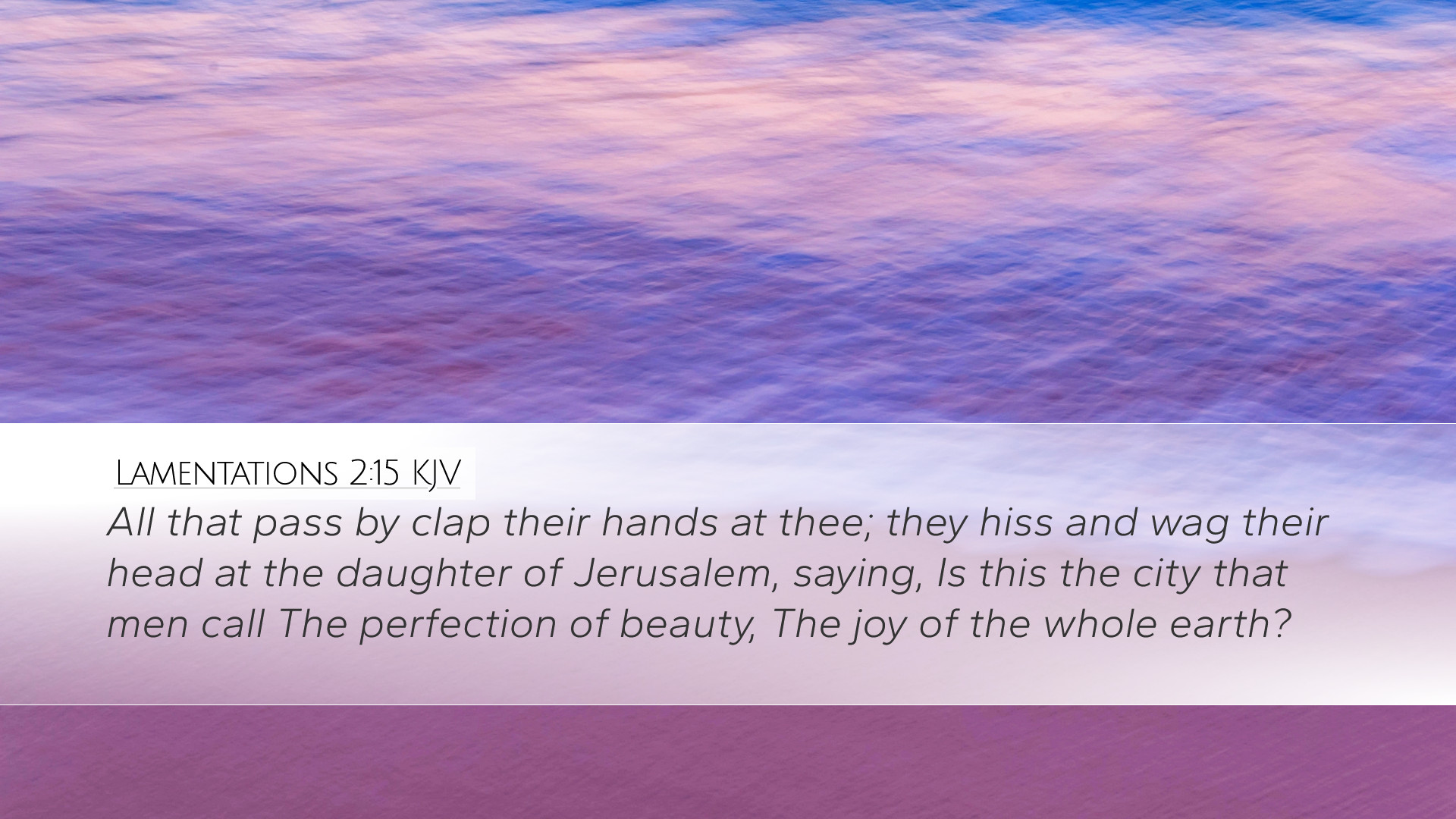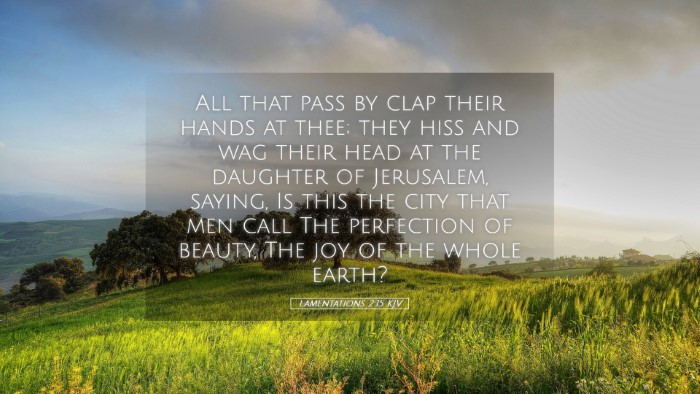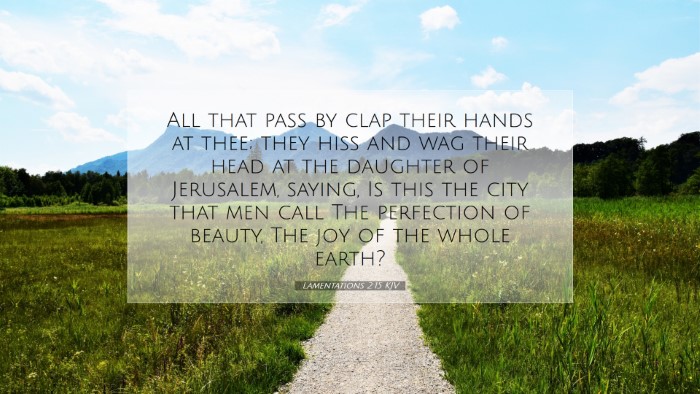Lamentations 2:15 - Commentary and Insights
The verse Lamentations 2:15 states: "All that pass by clap their hands at thee; they hiss and wag their head at the daughter of Jerusalem, saying, Is this the city that men call the perfection of beauty, the joy of the whole earth?" This passage captures a moment of profound sorrow and humiliation for a people witnessing the destruction of Jerusalem. The significance of this verse reverberates through the voices of several public domain commentators. Below, we explore the insights from Matthew Henry, Albert Barnes, and Adam Clarke.
Overview of the Context
The book of Lamentations is a poetic reflection on the devastation of Jerusalem after its destruction by the Babylonians in 586 BCE. It expresses deep anguish and sorrow over the ruin, faithfully articulating the feelings of desolation and loss. Lamentations 2 focuses on God's judgment and the calamity that befell His people, reinforcing themes of suffering and divine retribution.
Commentary Insights
Matthew Henry
Matthew Henry provides a poignant reflection on the shame and mocking faced by Jerusalem. He notes that those who passed by the city, clapping their hands and hissing, are emblematic of a society that once revered Jerusalem as a pinnacle of beauty and religious significance. In this mockery, we see a powerful reversal of fortune. Henry emphasizes:
- The stark contrast: Where once Jerusalem was held in high regard, now it serves as an object of ridicule.
- Divine judgment: Henry points out that this humiliation is a direct result of God's anger towards His people for their infidelity and sin.
- The role of the onlookers: These outsiders represent the broader world that may witness the downfall of God's chosen people, bringing into question the fidelity and protection of God.
Albert Barnes
Albert Barnes focuses on the imagery of mockery and the despair felt by those in Jerusalem. He reflects on the verse by dissecting the actions of the onlookers:
- Public humiliation: Barnes suggests that the clapping of hands is a gesture of scorn, indicating how far Jerusalem has fallen from its former glory.
- Perceived perfection: He highlights the irony when the surrounding nations ask, "Is this the city?"—they illustrate the dramatic fall from the "perfection of beauty" it once held.
- Loss of identity: Barnes asserts that this questioning implies a loss of identity for Jerusalem, reflecting how sin impacts the communal psyche and leads to a broader disillusionment.
Adam Clarke
Adam Clarke offers a rich historical perspective, connecting the lament to the broader narrative of Israel's history. His commentary includes:
- Historical significance: Clarke notes that Jerusalem was prior referred to as a "joy of the whole earth," remarking on how this point compounds the tragedy of its current state.
- Theological implications: He provides insights into the implications of Jerusalem's fall, emphasizing it as a testimony of God's covenant with His people and the consequences of their disobedience.
- Hope amidst despair: Despite the focus on mockery and humiliation, Clarke subtly alludes to a future restoration, planting seeds of hope within the lamentation.
Theological Reflections
Lamentations 2:15 propels readers to consider the nature of divine justice and mercy. The derision faced by Jerusalem is not merely an issue of physical destruction but a profound spiritual lesson for contemporary believers.
- Understanding divine punishment: The commentary reflects the seriousness of God's judgment and the importance of fidelity in the covenant relationship.
- The dangers of complacency: The fall of Jerusalem serves as a warning to modern believers about the perils of spiritual apathy and moral decline.
- Hope in despair: Finally, the passage suggests an enduring hope that amidst judgment, God's mercy endures, and there lies a promise for restoration.
Conclusion
Lamentations 2:15 serves as a profound reminder of the fragility of human dignity and societal status in the face of divine judgment. Through the combined insights of Henry, Barnes, and Clarke, we can appreciate the depth of emotion embedded in this lament, seeing it not just as a historical recount but as a relevant teaching that continues to resonate with believers today. The verse implores us to reflect upon our spiritual state and remain steadfast in our covenant with God, while also offering assurance that even in the depths of despair, the possibility for hope and restoration exists.


